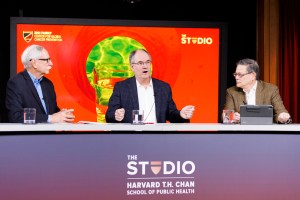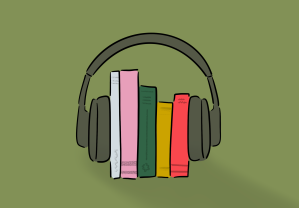Arts & Culture
-
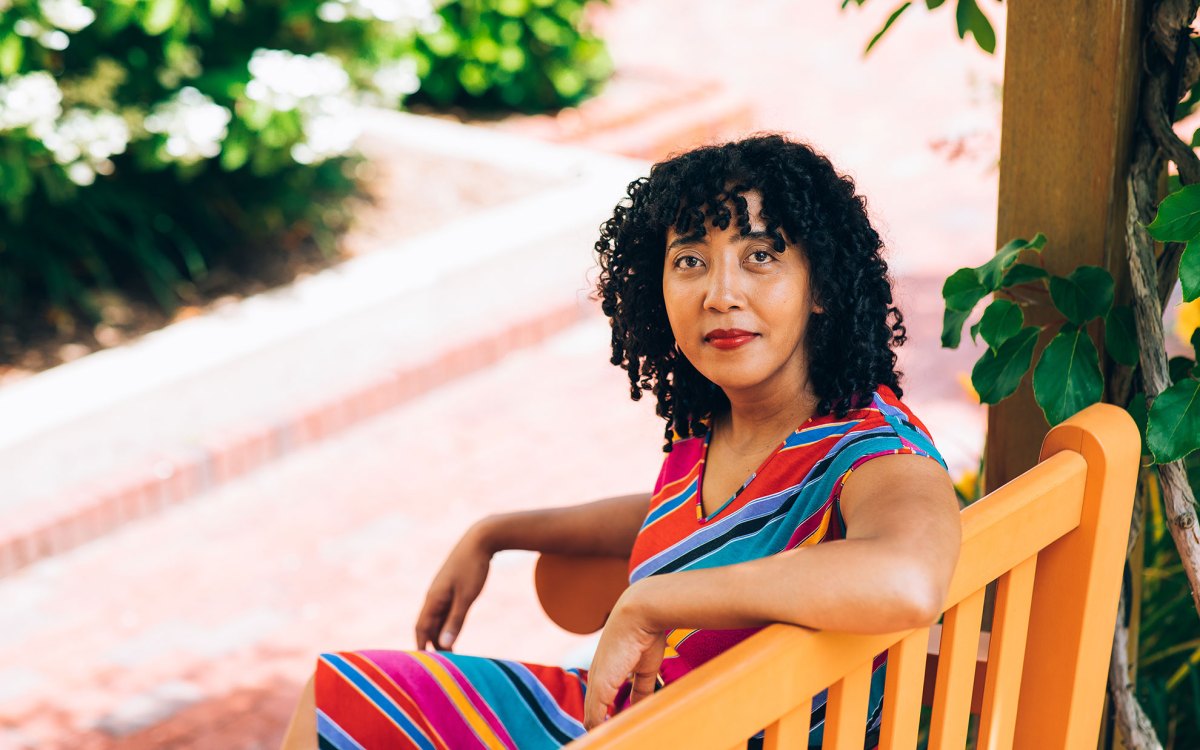
Immersed in Toni Morrison’s multitudes
Professor’s book is an appreciation of Nobel-winning novelist’s ‘difficult’ oeuvre — and a defense
-
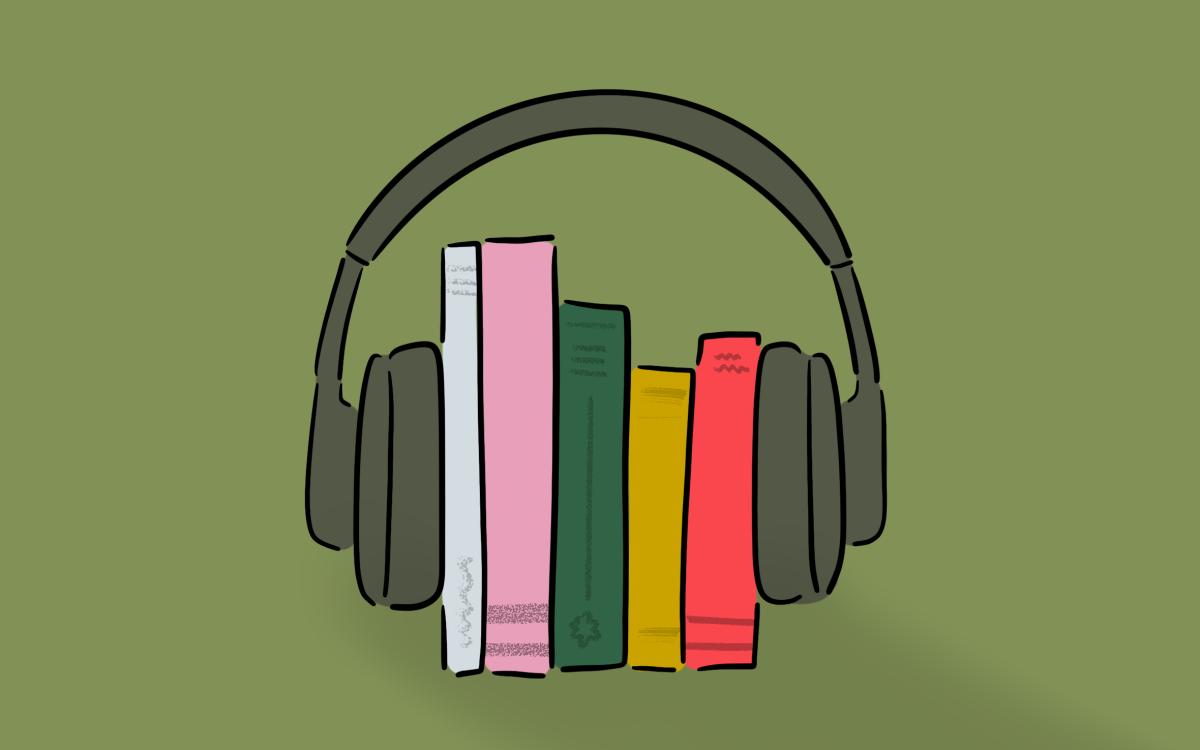
Audiobooks don’t really count as reading? Think again.
Education scholars say rigor, learning same as paper, stigma an unnecessary hurdle
-
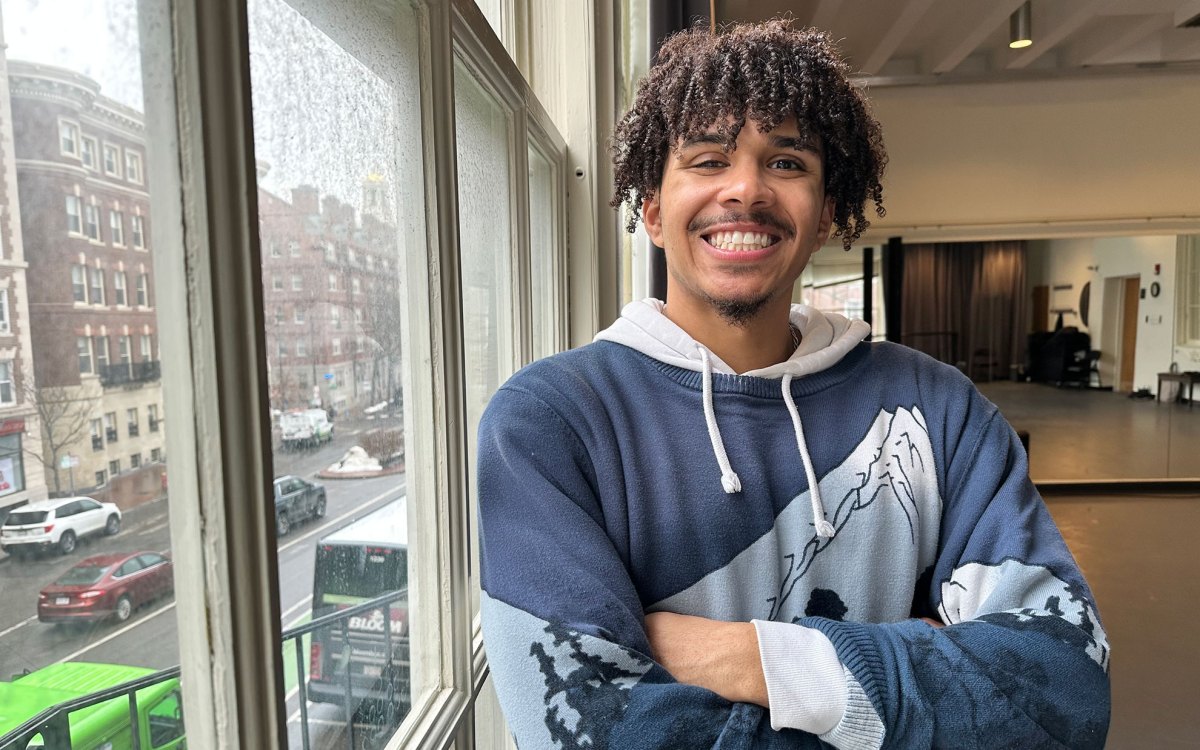
Retelling Frederick Douglass’ story, with a soundtrack
Senior composes musical about abolitionist’s early life
-
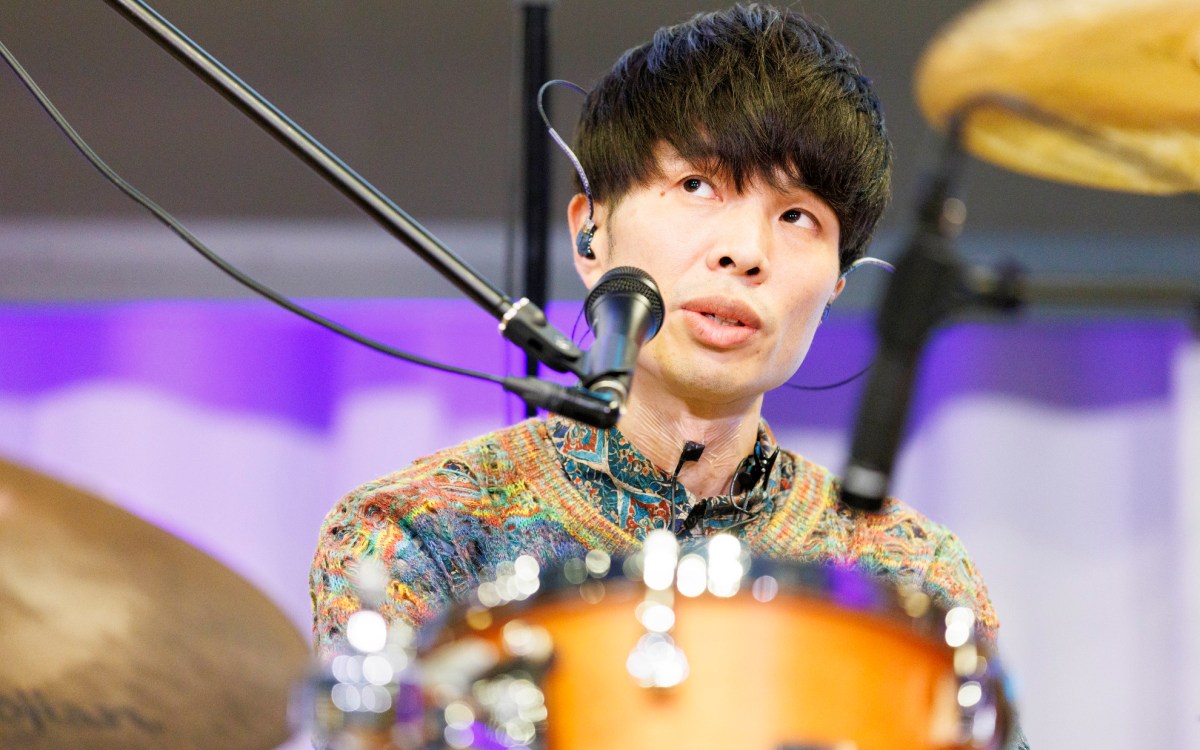
‘The sound stopped suddenly’
After rare condition robbed drummer of ability to play music, science led him back
-

Moved by what’s missing in Homer’s ‘Harrow’
Curator launches series steeped in U.S. history
-

Tina Fey’s keys to a good joke: Snark, confidence, surprise
Comedian keeps Harvard crowd laughing with longtime co-writer Robert Carlock ’95
-
Remembering the ‘American War’ of the ’60s
How do nations remember? In part, they remember through monuments — public art designed to capture a national memory and carry it through the ages.
-
Paulus reaches beyond boards
Clad in black and white, her brown hair loose about her shoulders, her green eyes intense, Diane Paulus sits in her office and smiles. Against the window rests a stolen treasure from her days as a Harvard freshman, a poster of the American Repertory Theater’s (A.R.T.) production of Samuel Beckett’s “Endgame.”
-
Handel’s ‘Saul’ to be performed in memory of John Raymond Ferris
The Harvard University Choir and the Harvard Baroque Chamber Orchestra will present Handel’s magnificent oratorio “Saul” on April 26. The performance is dedicated to the memory of John Raymond Ferris, University organist and choirmaster from 1958-1990, who passed away last summer.
-
Seniors Buzney, Barron win Mellinger Award
Harvard-Radcliffe Orchestra (HRO) members Catherine Buzney ’09 and Christine Barron ’09 have been named recipients of the Rachel Mellinger Memorial Award.
-
Human colonization of Australia and the Americas examined
A recent symposium about the prehistory of Australia and the Americas brought together scholars from 10,000 miles apart. But that’s nothing compared to the journey early humans made to populate Australia and the Americas tens of thousands of years ago.
-
Chance favored expedition leader in ‘missing link’ discovery
A graphic in an undergraduate geology textbook serendipitously led to the 2004 discovery of the missing link between fish and land animals far in the Canadian Arctic, one of the creature’s discoverers said during an April 16 lecture at Harvard.
-
Marking a century since North Pole discovered
The 100th anniversary of the discovery of the North Pole was marked this year on April 6. For more than 20 years, Harvard Foundation Director S. Allen Counter has made it a mission to bring to light the work of Matthew Henson, the African-American Arctic aide of Robert Peary, the sole explorer credited for reaching the North Pole in 1909.
-
Roughing it on Great Brewster
Four women keep a meticulous diary of their stay on Great Brewster Island in July of 1891. The diary, which is filled with illustrations and photographs, was purchased by the Schlesinger Library in 1999.
-
Inaugural Playwrights’ Festival
Eleven undergraduate playwrights will present staged readings of their plays as part of the inaugural Harvard Playwrights’ Festival, held April 23-26 in New College Theatre. The plays will be performed with the collaboration of professional directors, graduate actors, and dramaturges from the Institute for Advanced Theatre Training.
-
Playwrights find a venue
Chris Gummerson ’12 was driving past the headquarters of a scrapple factory in a small town when an idea for a musical came to her. What if the town’s livelihood depended on the factory, and what if a USDA official made a surprise visit that culminated in a product-recall panic, and what if the meat-eating son of the factory’s owner fell in love with the vegan-artist daughter of the USDA official, and they had to set aside their dietary differences to save the town?
-
Roughing it on Great Brewster
On the hot day of July 15, 1891, four women set off for the adventure of a lifetime in Boston Harbor. For nearly two weeks the quartet — well-educated, upper-class women from the Lowell area — “roughed it” in a quaint yet ramshackle cottage on remote Great Brewster Island, a place they considered “an enchanted isle.”
-
Yannatos retires after 45 years, concert planned
With music filling his ears, the Harvard-Radcliffe Orchestra (HRO) Conductor James Yannatos will retire after 45 years by giving his final concert on April 17.
-
Jehn is appointed director of the Harvard College Writing Program
Thomas R. Jehn, an expert in writing pedagogy, has been appointed Sosland Director in the Harvard College Writing Program, effective immediately.
-
Pros teaching prose
Clicking keyboards provide a soundtrack to the semester’s end, as students put finishing touches on term papers, theses, dissertations, and the like. But amid the flurry of traditional writing assignments, there are other projects afoot. Short stories, for example. Screenplays. Fiction manuscripts. Personal essays.
-
Radcliffe Fellow tells tale of first woman to play professional baseball
In 1991 the Baseball Hall of Fame in Cooperstown, N.Y., paid homage to players from the Negro Leagues, an artifact of segregated America that had faded away three decades earlier.
-
Uncovering the power of ritual in ‘The Rite of Spring’
“Art is a coalescing, unifying force,” says Christine Dakin, addressing the students gathered for her weekly seminar at the Harvard Dance Center. A glance around the room confirms her statement — Dakin’s students represent a cross-section of Harvard that could not be more diverse. They are performance artists, neurobiologists, and economists. They come from several of Harvard’s Schools. They range in age, dance experience, and academic background. But all are bound together by a single work of art — Igor Stravinsky’s “The Rite of Spring,” the famed ballet that has captivated and confounded listeners since it first premiered in 1913.
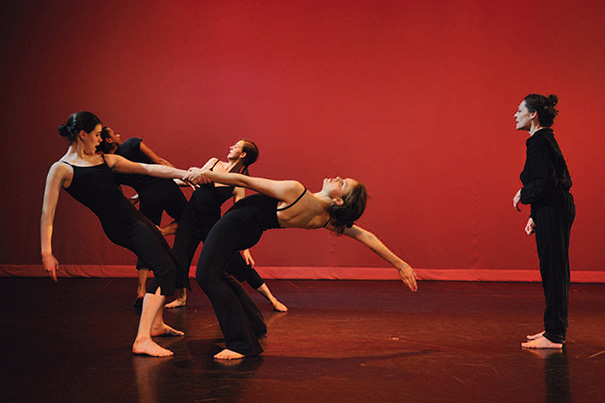
-
Harvard University Library awarded $5M grant from Arcadia Fund
Britain’s Arcadia Fund has awarded $5 million to the Harvard University Library. Arcadia’s five-year grant will provide flexible support for the library’s core functions: acquisitions, access, preservation, and dissemination.
-
The pogrom that transformed 20th century Jewry
On April 8, 1903 — Easter Sunday — a mild disturbance against local Jews rattled Kishinev, a sleepy city on the southwestern border of imperial Russia.
-
Scholar enjoys wrestling ‘the Great Bear’
Some scholars are hard-pressed to identify what exactly drew them to their field. Others can point to a specific “aha!” moment when they found their academic calling. In Justin Weir’s case, it all began with a bit of bureaucracy.
-
National Endowment for the Humanities supports preservation of Qajar dynasty
The National Endowment for the Humanities has made a $346,733 grant to a team of Qajar historians. The purpose of this grant, which lasts from May 2009 to June 2011, is to develop a comprehensive digital archive and Web site at Harvard University that will preserve, link, and render accessible primary source materials related to the social and cultural history of women’s worlds during the reign of the Qajar dynasty (1785-1925) in Iran.
-
Cinematic reverberations
The writing of culture watcher and critic Louis Menand — Harvard’s Anne T. and Robert M. Bass Professor of English — has cast a wide net over the years.
-
Poet/critics and the state of the art
A triumvirate of prominent poet-critics – each with strong Harvard ties – took on the meaning of contemporary poetry last week. And despite a lively discussion, none of them provided a comprehensive definition.
-
Gail Mazur reads at Radcliffe
After removing her soaked red sneakers, Radcliffe Fellow Gail Mazur read aloud from new poems Monday (April 6) in dry black socks. The poet was undeterred by the onslaught of gray rain that thrashed Radcliffe Gymnasium’s windows — a fitting backdrop for Mazur’s charged, emotional poems.
-
Creativity through cerebration
Contemporary composer Kay Rhie hasn’t had many watershed musical moments. The romantic ideal of a composer “deeply entrenched in creative epiphanies,” she admitted on a recent damp spring afternoon, is “not my story.”
-
Atkins, Dennehy to perform poems of T.S. Eliot
In the first lines of “The Waste Land,” a touchstone of modernist poetry from 1922, T.S. Eliot offers an ambiguous view of the very month we are in: April is the cruellest month, breeding Lilacs out of the dead land, mixing Memory and desire, stirring Dull roots with spring rain.
-
History of a ‘scribal machine’
Starting in the 1920s, Chinese writer Lin Yutang earned a reputation as an urbane essayist and translator who moved easily between the literary cultures of the East and West.
-
OfA, OCS name 2009 Artist Development Fellowships
The Office for the Arts at Harvard (OfA) and Office of Career Services (OCS) are pleased to announce the 2009 recipients of the Artist Development Fellowship (ADF). This program supports the artistic development of students demonstrating unusual accomplishment and/or evidence of significant artistic promise. The ADF program represents Harvard’s deep commitment to arts practice on campus and provides financial support for the creative and professional growth of student artists.
-
Peabody preserves rare daguerreotypes
Thirty-six rare daguerreotype portraits from the Peabody Museum of Archaeology and Ethnology have recently been stabilized and preserved for future generations, in collaboration with the Weissman Preservation Center at Harvard University Library and the Mellon Foundation. Until photo conservators got to work, some daguerreotypes were nearly obscured by the deterioration of glass and other components, while others suffered from cracked or broken cases.
-
Playwright plumbs texts, ancient and modern
You know Noh, no? Chiori Miyagawa does. The Bard College playwright-in-residence, a Radcliffe Fellow this year, has steeped herself in Noh theater, a measured style of Japanese drama that dates back to the 14th century. It’s one of the many literary echoes — some old, some ancient — that she brings to her work. “I often time travel,” Miyagawa told a lecture audience March 16 at the Radcliffe Gymnasium. “It’s my favorite thing to do as a playwright.”
-
Drawing from history
History and art are intricately linked in “Wiyohpiyata: Lakota Images of the Contested West,” a new exhibit at Harvard’s Peabody Museum of Archaeology and Ethnology based on a collection of drawings by Native American warriors. “It’s so rich. It’s such a complex, interesting document that has so many stories embedded in it,” said the show’s co-curator Castle McLaughlin of the “artists book” that inspired the exhibition.
